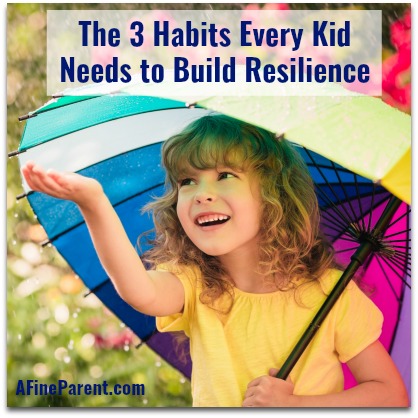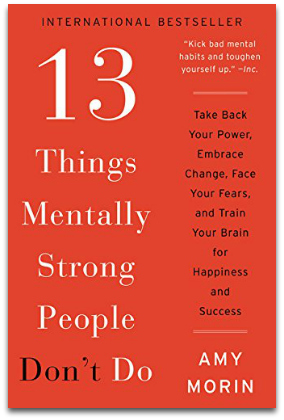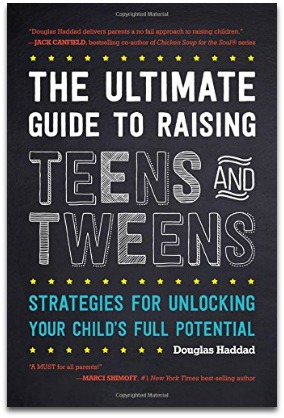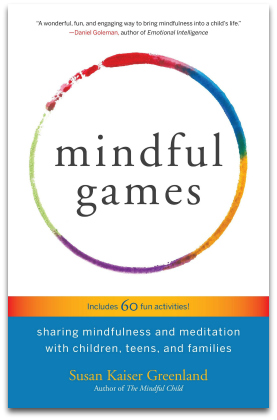 Grit
Grit
Determination
Tenacity
They are all words for Resilience.
Resilience is more than the buzzword of the year. It is what gives us “the courage to go after our dreams, despite the very real risk that we’ll fail in some way or other.”
Isn’t that what we want for our kids? To go after their dreams and their passions and achieve them? Ever since I read Carol Dweck’s now-famous book Mindset : The New Psychology of Success I have been looking for ways to teach my kids this kind of resilience.
We go on hikes and do brain-teaser puzzles. We have even tried a ropes course in our quest to build resilience within them. It was in the midst of walking my oldest son through an algebra problem that I realized that resilience isn’t just a mindset, it’s a habit.
Resilience should be as much a habit as brushing your teeth in the morning or having a snack after school.
It’s something that we should be building into our everyday lives in such a way it becomes an unconscious choice. We simply don’t consider giving up when we don’t get that math problem right the first time. Trying again is our habit.
My boys are good at showing resilience in big moments or for specific projects. For example, my oldest son wanted to experiment with parallel circuits for a science project. He had all kinds of issues with the connections between the wires. The tape would slip or the wires wouldn’t be making good contact with the battery or he attached the wire incorrectly.
There were definitely moments of extreme frustration. He lost his temper several times and had to walk away from his project a few times. But he always came back and tried it all again.
In his everyday life he doesn’t seem to have that kind of resilience as his default. We recently got new kittens. I asked him to open the can of food for them and that’s when the trouble hit. I don’t know if you’ve ever tried to open a can of cat food, but that flip-top lid can be difficult to open. When he was unable to get the can open he just gave up!
He didn’t even ask for help! He just stopped trying completely and left the can on the counter for me to find. The resilience to keep trying at the lid was not a part of his default setting.
So how do we make it a real habit? How can we teach them everyday resilience?
Build Mental Strength
 Amy Morin, a licensed psychotherapist and author of 13 Things Mentally Strong People Don’t Do, says that mental strength is being able to choose behavior based on balanced emotions and rational thinking. Having mental strength is key to building resilience.
Amy Morin, a licensed psychotherapist and author of 13 Things Mentally Strong People Don’t Do, says that mental strength is being able to choose behavior based on balanced emotions and rational thinking. Having mental strength is key to building resilience.
Kids that have mental strength can regulate their thoughts, control their emotions, and then decide on a positive action. These kids can realize when they are becoming frustrated, take steps to calm down, and then come up with a plan for next time.
Kids model the behavior they see around them. So, I realized that it’s important they see my own struggles and hear me talk through getting beyond failures of my own.
Katie Hurley, a child and adolescent psychologist and author of No More Mean Girls, agrees. Keeping silent about our struggles and our failures can actually lead our kids down a road to perfectionism or a need to be “the best.”
Perfectionism – which used to mean a job well done – has become the opposite of resiliency. Kids who are perfectionists tend to stop when things don’t go according to plan. It takes a long time for kids who have latched onto the need to be “the best” to come back around to being okay with having done their best.
One of the major things I did to help my kids start to develop mental strength was to start being honest about my own struggles. It would be easy for me to pretend that I have got all the craziness of my own life under control and that I never make mistakes or have to start over.
But I do have to start over. All the time.
Part of what I do for a living is write. And part of writing is crossing out big sections of text and starting over. I have friends who have had to nuke entire chapters of their books and re-write them from scratch. It is a special kind of heart-wrenching experience to willingly delete about a week’s worth of work and start from zero.
So I talk to them about that. I talk them through the issues that section of text had and why I made the choice to delete it. I tell them how hard it was for me emotionally and how disappointed it made me feel. And then I tell them about the new section I wrote and how much better it will make the article or book that I am writing.
And as I model my own mental strength to them I can see them talking themselves through their own difficulties and frustrations. I can see them building mental strength.
Practice with a Passion
It’s always easiest to walk downhill, right? It’s the same thing with building a new habit!
Several years ago I really, really wanted to run a 5K. I’d never done it before, but for some reason I just had to do it. I didn’t have the ability to start off running the entire 5K. I couldn’t even start off running 1 mile! So, I started with what I could do, which was walking.
As I walked I would throw in a minute of running. Then I made it two minutes. Eventually, after many, many, many weeks, I could run the entire 5K distance.
It was hard work! But I was able to succeed because I had a goal I felt passionate about and I gave myself challenges just a little above my comfort level to stretch my abilities.
 The same is true for resilience. Douglas Haddad, a middle school teacher, Teacher-Ambassador for Public Education in the State of Connecticut for 2017, and author of The Ultimate Guide to Raising Teens and Tweens, recommends finding something your child is passionate about (even if it’s Minecraft) and letting them explore and challenge themselves.
The same is true for resilience. Douglas Haddad, a middle school teacher, Teacher-Ambassador for Public Education in the State of Connecticut for 2017, and author of The Ultimate Guide to Raising Teens and Tweens, recommends finding something your child is passionate about (even if it’s Minecraft) and letting them explore and challenge themselves.
When kids are challenged in areas they are passionate about they are more likely to stick with it, even when having moments of intense frustration. This kind of intrinsic motivation reinforces the rewards of succeeding at a challenge.
As they are being challenged Haddad recommends talking to them about the process and praising the efforts they are making. The more specific the better!
This kind of work towards a goal they are interested in builds their resilience muscles! It prepares them for challenges they will face in areas they aren’t so passionate about.
Mindfulness
Mindfulness is another one of those buzzword that many people have heard lately. Mindfulness is good for lots of things. For helping to appreciate life or for becoming aware of behavior patterns, for example.
 Mindfulness is also good for building a resilience habit. Susan Kaiser Greenland, a leader in teaching mindfulness to children, teens, and parents and author of Mindful Games, says that mindfulness is knowing where your mind is and what your state of mind is in real time. Knowing your state of mind in real time builds an awareness of when we are happy, sad, mad, or frustrated.
Mindfulness is also good for building a resilience habit. Susan Kaiser Greenland, a leader in teaching mindfulness to children, teens, and parents and author of Mindful Games, says that mindfulness is knowing where your mind is and what your state of mind is in real time. Knowing your state of mind in real time builds an awareness of when we are happy, sad, mad, or frustrated.
Being able to be aware enough to recognize that they are frustrated or becoming discouraged can allow our kids to mindfully and meaningfully implement strategies to reassess what is going wrong and decide on what to do differently.
Without the ability to be mindful, kids have a much harder time pulling themselves out of the grip of their emotions and applying themselves to figuring out where they went wrong. Having that ability to calm down quickly and then critically analyze their problems is a key to having a very deeply set resiliency habit.
2-Minute Action Plan for Fine Parents
For our quick contemplation today, let’s think about these questions:
What is your child’s resiliency habit? Are they always looking for better ways to get the work done? How easily do they bounce back from failure?
How do they react to challenges? Do they shut down? Are they afraid they will fail?
What is the thing your child likes to do the best? How long do they work at it? What do you observe when they are challenged doing this activity?
Long Term Action Plan for Fine Parents
Think of what their passions are. Is there a way you can make them just a little more challenging?
What challenges do you have while chasing your own dreams? Talk through your struggles and share your story with your kids.
Think about a mindfulness practice. How present are you in any given moment? Once you can become mindful about your own emotions you can help them recognize when they are becoming frustrated and then give them some techniques to calm themselves down and regroup.

Patience.
Resilience.
Temperance.
Thanks!
You are so welcome. Thanks for reading and sharing my article.